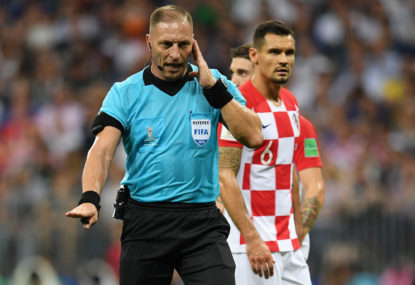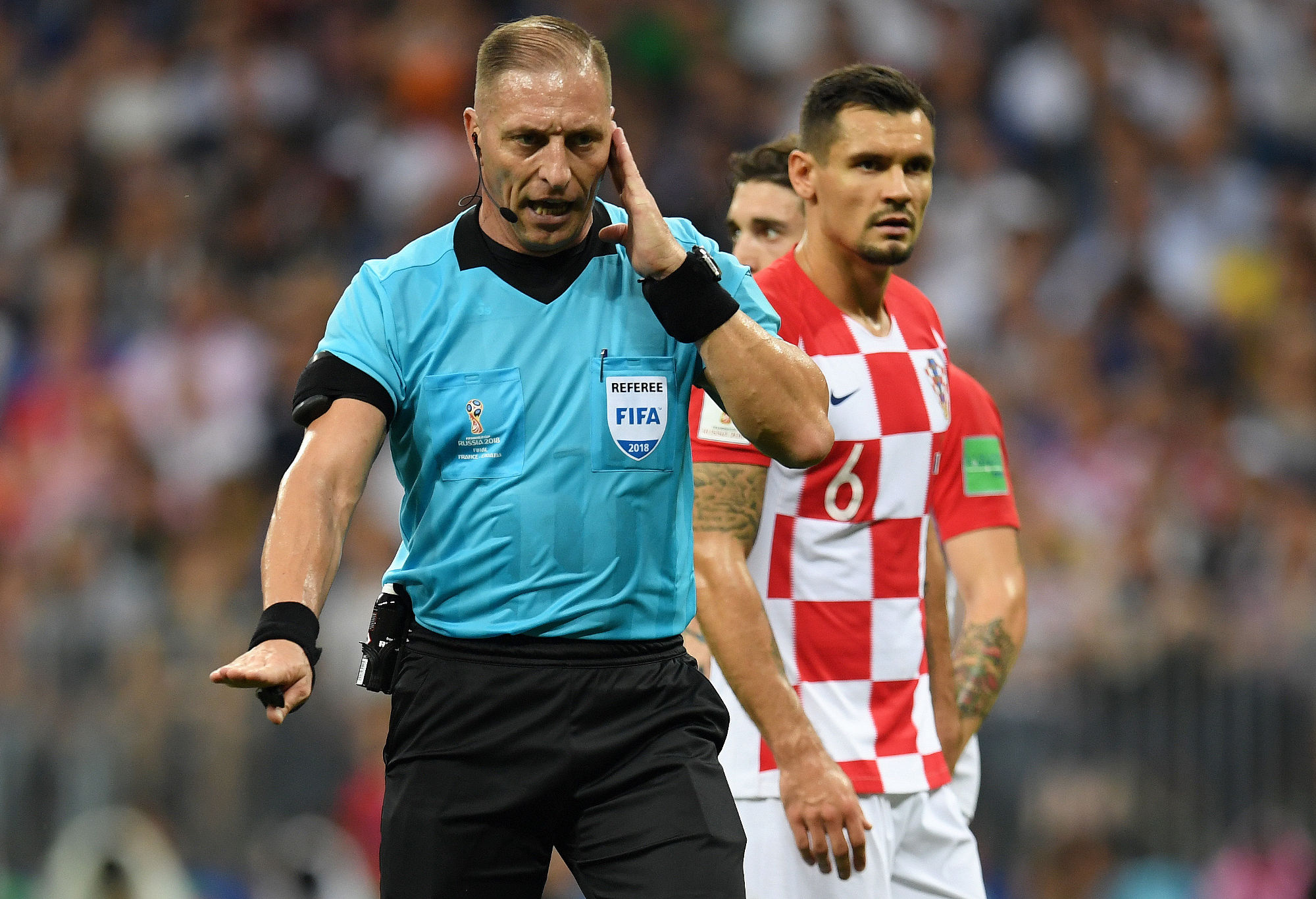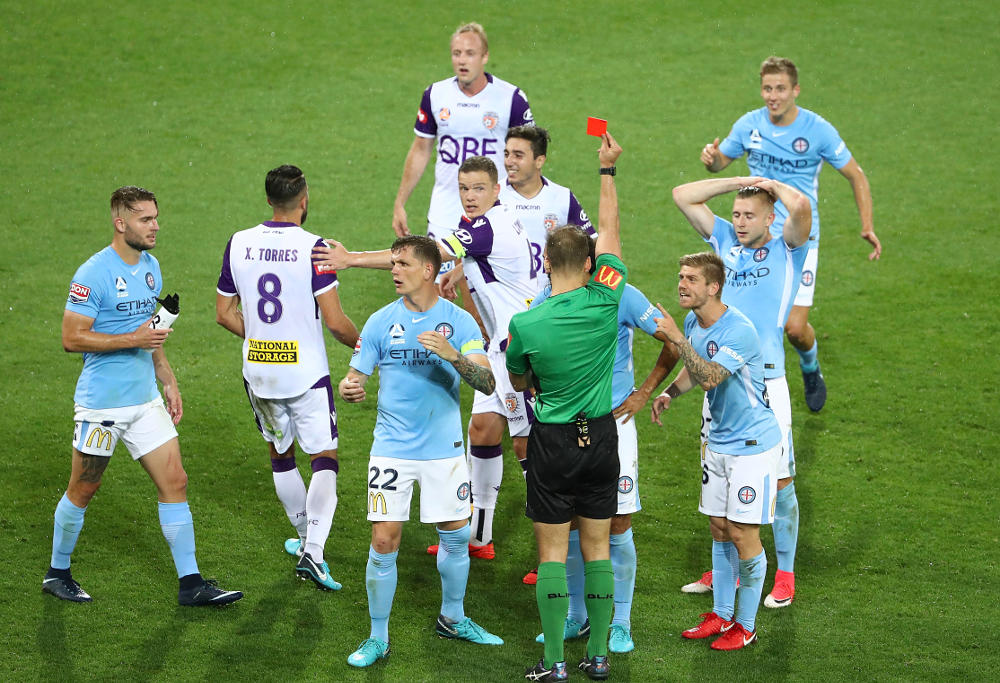Liverpool makes call to Slot in Dutchman as new boss with Klopp's seal of approval
Liverpool have reached a verbal agreement with Feyenoord for their head coach Arne Slot to succeed Jurgen Klopp at the end of the season.…

I’m unsure whether Michael Jackson was a footballer. Probably not. He certainly would have been tough to handle in the midfield with that fancy footwork and could have mastered the art of simulation early in his career considering his gift for performance.
One of his most critically acclaimed and celebrated songs got me thinking about the upcoming A-League season and video assistant referee (VAR). There is a need for the league to reflect deeply on its failings and implement a clear and instructive process for the officials in order to avoid the catastrophic past.
“I’m starting with the man in the mirror. I’m asking him to change his ways.”
It is a sad fact that VAR marred the grand final in Newcastle some three months back and created embarrassment for many. The officials on and off the pitch, the FFA and those governing the A-League all took the brunt and a glorious sell-out crowd in a traditional regional venue took a back seat to technological failure.
However, the day was the culmination of fury and anger towards the system, a feeling that will continue to fester until change is made.
Weeks later the world gathered in Russia and fears lingered that the mechanism would be a key determiner, potentially to the detriment of the tournament. The best footballers in the world, after decades of honing their craft in academies, rubble-ridden vacant blocks and suburban streets the world over, feared their toil would seem less important than a human in a booth with too many gadgets at their disposal.
And then, pppfffttt! Nothing. VAR came to the party and was actually pretty good. Sure, there were moments, with the Portugal versus Iran match a case in point. However, the level of controversy was certainly no more prevalent than in the days prior to technological assistance – in fact it was arguably less so.

(Matthias Hangst/Getty Images)
The success lay in a streamlined system and the speed with which it was applied to the action occurring on the pitch. FIFA got it right. It was akin to that firm and confident referee we have all encountered. The official who makes a decision, looks the players straight in the eye and calls play on, the subtext being, “If you have an issue with it, I have a yellow card waiting”.
The flim-flamming, flip-flopping, timid and uncertain official is the enemy of any game and the source of the ugly protest and distrust that sometimes overwhelms players and fans alike.
On 5 May in Newcastle that is exactly what Australia’s version of VAR appeared to be despite the fact that it was less the process and more the hardware to blame. To the fans it makes little difference and highlights the need for a long look in the mirror and proactive approach towards refinement and improvement.
Entering another A-League season without a clear rethink and a firm action-plan based on measurable and reliable data would be a dereliction of duty from Greg O’Rourke and his team.
Thankfully we have Russia to provide that data.
The World Cup proved to everyone that VAR can work, even in the A-League, and with the appropriate tweaks the local system could be improved immediately.
[latest_videos_strip category=”football” name=”Football”]
One of the potential flaws in the process is the decision-making by the assistant referees on borderline, offside decisions. The assistant effectively removes the technology from the equation once they wave their fluorescent flag.
In a situation where VAR could have been used to confirm or deny a goal it is rendered useless once that flag is raised. The referee correctly trusts the assistant, enforces the ruling and everybody looks a goose a few minutes later when a commentary teams deride VAR and those who overrode it with human error.
A directive to flag the obvious and otherwise allow play to continue allows the VAR to decipher a moment of inches more thoroughly than a puffing official in a highly pressured environment. An underlying mantra of ‘play on wherever possible’ needs adherence to.
While it feels a little strange for all of us to see play continue as an unidentifiable official reviews a decision seemingly from the ill-defined technological cloud, it will become the norm.
Watching it on a daily basis in Russia and understanding the processes in place certainly had something of a desensitising effect. By tournaments end most were content with its use.
In addition, when VAR is called upon in the A-League this season a timely look from each angle available should provide the answer. Watching freeze frame after freeze frame and ‘rocking and rolling’ footage, searching for something that may or may not be there, does neither the officials or fans any favours at all.

(Robert Cianflone/Getty Images)
In Russia the decisions were made briskly, with an analysis conducted in the booth on the evidence at hand and the determination passed down speedily to the referee. At times the players were incensed, yet no more so than by a decision made solely by an on-field official.
The rapid continuation of play promoted an acceptance of the decision and protected referees from the excessive attention and pressure applied by circling players.
Removing scope for A-League referees to move to the sideline and review play at the foot of the grandstand would also improve the system immeasurably. If there was ever a situation designed to incite aggravation in fans and place ridiculous pressure on an official, this surely is the one.
If the VAR is a highly qualified and competent official capable and empowered to make independent calls, why should any decision be thrown back in the direction of the referee?
As in all sport, the adaptation and implementation of technology into the decision-making processes of officials has been problematic and fraught with inconsistencies. The FIFA World Cup in Russia showed that it can indeed work.
If the A-League suits hope to lessen the angst and distrust around VAR, the administrative powers would do well to consider these tweaks. Having a backup mechanism for technical malfunctions might be a handy plan as well.
No system is perfect, nor are humans, but if the A-League hope to build any sense of trust in the process after the fiasco of last season’s biggest day, they must be prepared to tinker.